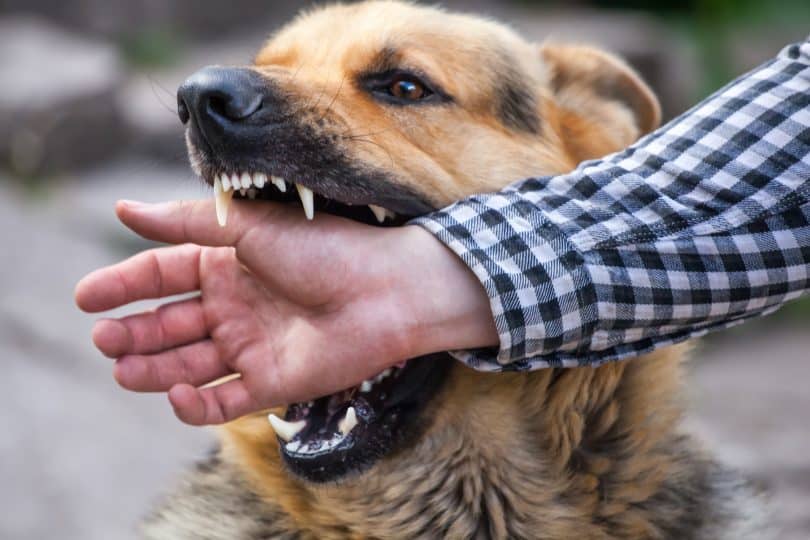Dog bites are surprisingly common, affecting thousands of people yearly. While the physical wounds often heal with time, the emotional trauma can linger much longer. In addition to seeking medical attention, victims of dog bites may also need support to address the psychological effects of the attack.
Contents
Dog Bite Lawyers: Protecting Your Rights
During this recovery process, consider consulting with a dog bite lawyer. These legal professionals understand the intricacies of dog bite cases and the qualities a dog bite lawyer must have to represent you. This includes experience with dog bite laws in your jurisdiction, a strong track record of success in similar cases, and compassion for clients who are going through a difficult time.
Moving forward, let’s explore some of the common psychological effects dog bites can have on victims.
Fear and Anxiety
Imagine surviving a dog attack; the shock fades, but the fear lingers. Every bark on the street sends shivers down your spine. That’s what many dog bite victims experience—a rollercoaster of fear and anxiety.
Below are the common psychological consequences:
- Fear of dogs (cynophobia): Even friendly dogs can make you tense up after an attack. A wagging tail isn’t playful anymore; it’s a potential threat. You might start avoiding walks in the park or canceling plans with friends who have furry companions. It can feel like everywhere you turn, there could be a dog, and that constant worry can be exhausting.
- Constant on-edge feeling: The attack can leave you feeling like the world is a scary place. You might constantly worry about something bad happening again, making it hard to relax or enjoy everyday moments.
- Feeling isolated: The fear of encountering dogs might make you avoid visiting the park, visiting friends with dogs, or even stepping outside your door. This can lead to loneliness and a feeling of being shut off from the world.
Addressing fear and anxiety early is crucial for recovery. Professional help, such as therapy, can provide strategies to manage these feelings and improve your overall well-being.
Flashbacks and Nightmares
Dog bite trauma often results in persistent psychological effects, such as flashbacks and nightmares. These symptoms can disrupt daily life and mental well-being.
To understand the impact, here are the common effects of flashbacks and nightmares:
- Flashbacks that come out of nowhere: You might be walking down the street, feeling fine, and then suddenly, you’re back in the moment of the attack. Your heart races, you tense up—it’s like the whole thing is happening again. These flashbacks can be triggered by anything related to dogs, like a barking sound or even seeing someone walking their pet.
- Nightmares that wake you up in a sweat: You finally drift off to sleep, but then you’re jolted awake by a dream of the attack. Your heart is pounding, and you can’t shake the feeling of fear and helplessness. These bad dreams can make it hard to get a good night’s sleep, leaving you exhausted and even more on edge during the day.
- Always looking over your shoulder: After the attack, you can’t seem to switch off. You find yourself constantly scanning your surroundings, especially for dogs. This feeling of needing to be on high alert all the time can leave you feeling drained and anxious. It’s hard to relax or feel safe when you’re always worried something might happen again.
These sleep disturbances can significantly impact your overall well-being. If you’re struggling with flashbacks, nightmares, or hypervigilance, seeking professional help from a therapist can be crucial. They can teach you coping mechanisms to manage these issues and promote better sleep, which is essential for healing from the trauma.
Depression and Low Self-Esteem
Dog bite incidents can lead to significant emotional challenges, including depression and low self-esteem.
The following are the main psychological effects that victims might experience:
- Feeling down and discouraged: The attack can leave you feeling emotionally drained. Things you used to enjoy might seem pointless, and it’s hard to muster the energy to do much of anything. This low mood can make it difficult to cope with daily life and healing from the trauma.
- Feeling self-conscious about scars: The attack might leave scars on your body. This can make you feel self-conscious, especially when wearing certain clothes or around others. You might avoid situations where you’d typically show more skin, like swimming or wearing shorts.
- Giving up on favorite activities: The attack and any injuries you sustained might make it difficult or even impossible to do some of the things you used to enjoy. This can be frustrating and make you feel like you’ve lost a part of yourself. Maybe you loved jogging in the park, but now you’re too scared because of other dogs. Or perhaps you enjoyed playing fetch with your pet, but your injuries make it too painful.
Addressing these emotional effects through therapy and support can help in rebuilding confidence and improving mental health.
Conclusion
Dog bites can have a profound impact that extends far beyond physical wounds. The emotional scars can be significant, causing fear, anxiety, and even depression. While these challenges can feel overwhelming, it’s important to remember that you are not alone. Professional help is available, and with support, you can heal from the trauma and regain a sense of control over your life. Don’t hesitate to reach out to a therapist to develop coping mechanisms and rebuild your emotional well-being.







